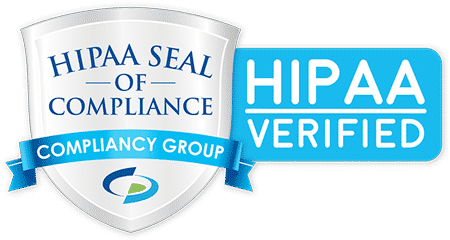
Risk Mitigation Strategies to Keep Your Business Secure
To stay competitive and protect their data, companies need a comprehensive risk mitigation plan. In this article, we’ll discuss the importance of a thorough risk mitigation plan and the various types of risks that need to be addressed. We’ll also cover some best practices for implementing risk mitigation strategies.
What Is Risk Mitigation In IT?
Risk mitigation in IT involves identifying potential risks, assessing their severity, and taking measures to reduce the likelihood of the risk occurring. Because it helps to protect the company from data breaches and other malicious activities, it’s an essential part of any organization’s IT security strategy. Risk mitigation starts with analyzing the company’s current security measures and creating a detailed assessment of potential vulnerabilities. This allows businesses to make more informed decisions about developing and implementing a risk mitigation plan.
The Importance of a Thorough Risk Mitigation Plan
An effective risk management plan is essential for any business that processes sensitive data or relies on digital systems for its operations. A comprehensive risk mitigation plan will help identify existing security measures’ weaknesses, assess their impact on operations, and develop strategies for reducing overall risk. Without a solid IT risk management strategy, businesses are vulnerable to cyberattacks, data loss, or compliance violations that can significantly harm their bottom line.
The Types of Risk
When it comes to mitigating risks in IT, there are several types that must be addressed:
- Compliance: Refers to legal consequences for not complying with data security or privacy laws—mitigate by staying updated on regulations
- Legal: Arises from issues leading to costly legal proceedings. Mitigate by working with an IT provider knowledgeable in industry laws and regulations.
- Strategic: Occurs when current strategies become ineffective due to unforeseen circumstances—mitigate by partnering with an IT provider experienced in developing tailored plans.
- Reputational: Involves damage to business due to breakdown in procedures or inefficient systems—mitigate with IT services, automation, and efficient processes.
- Operational: Internal loss due to inadequate internal processes, people, or systems—mitigate by implementing up-to-date security practices and providing ongoing support services.
Common Compliance Risks
With the ever-increasing complexity of IT systems, businesses today face many compliance risks that could expose them to legal liabilities and other unfavorable outcomes.
Security
Businesses are responsible for protecting the data they collect, process, and store. This means they must have secure systems and procedures in place to mitigate the potential for security breaches. Compliance risks related to cybersecurity include the technical side of securing systems and ensuring that data is handled properly and securely. This includes having adequate backup procedures, protecting access to data with strong passwords or two-factor authentication, encrypting sensitive data, and limiting access as appropriate.
Data Privacy
Data privacy is one of the most important compliance risks businesses must consider when dealing with IT systems. Data privacy involves understanding how customer data is collected, stored, shared, used, and disposed of by the organization. Businesses must ensure that they comply with all applicable laws and regulations regarding data privacy, such as GDPR, and any industry-specific requirements.
Governance Within Compliance
Governance within compliance involves ensuring that organizations efficiently manage their IT assets through effective measures, such as policy creation and enforcement, adequate monitoring of activities around the system, and regular assessments. Businesses need to implement these processes before implementation occurs so that any issues can be addressed ahead of time rather than after an audit or investigation has already been initiated.
Data Management
Businesses must also consider compliance risks associated with data management. This includes ensuring that all stakeholders have access to accurate and up-to-date information about their IT assets, and implementing processes for securely storing and disposing of customer data once it is no longer needed or required by law.
Having risk mitigation strategies in place for your infrastructure is a great start, but there’s always more you can do. Check out these additional tips on protecting against data breaches.
Risk Mitigation Strategies for Peace of Mind
When looking for an IT partner, businesses should be aware of the risk mitigation strategies in place.
Avoidance
Avoidance is the most straightforward risk mitigation strategy; it involves avoiding potential risks altogether. For IT, this means preventing threats by having secure systems and processes in place. For instance, an IT provider might have a comprehensive security system with multi-factor authentication, encryption, and access control measures to reduce the chances of a data breach. An IT partner should provide regular training for employees on cybersecurity best practices to ensure everyone understands how to protect against cyberthreats.
Reduction
This strategy involves reducing the likelihood of risks occurring and minimizing their impact if they do occur. A good IT provider will use risk assessment tools such as penetration testing and vulnerability scans to identify weak points in your system that attackers could exploit. Once these weaknesses are identified, they can be addressed with appropriate security solutions such as patching or updating software or implementing additional controls to prevent unauthorized access.
Transference
The third strategy involves transferring the risk to a third party. Your IT partner may offer insurance coverage for data breaches or other incidents so that you won’t incur any losses if something goes wrong. They may also work with external vendors who specialize in different areas of security, such as data privacy or network security, so that they can provide additional protection for your business.
Acceptance
A fourth strategy entails a business accepting some level of risk rather than trying to eliminate it completely. For instance, an organization might choose not to invest heavily in certain areas of cybersecurity if they deem the threat low enough that they’re willing to take on the associated risks. However, this should always be done cautiously since even low-level threats can still have disastrous consequences for businesses if left unchecked.
NET3 IT: Your Source for Managed IT Services In Knoxville
Want to learn more about how Net3 can help you implement risk mitigation strategies that will eliminate costly security incidents and data breaches? Contact our team of experts to get started.

About Us
Since 2012, Net3 IT has offered enterprise-level IT experience and industry knowledge to help Knoxville businesses make the right decisions. We are committed to our customers’ success by providing cost-effective, high-value IT services, VOIP phone services, and strategic consulting.



